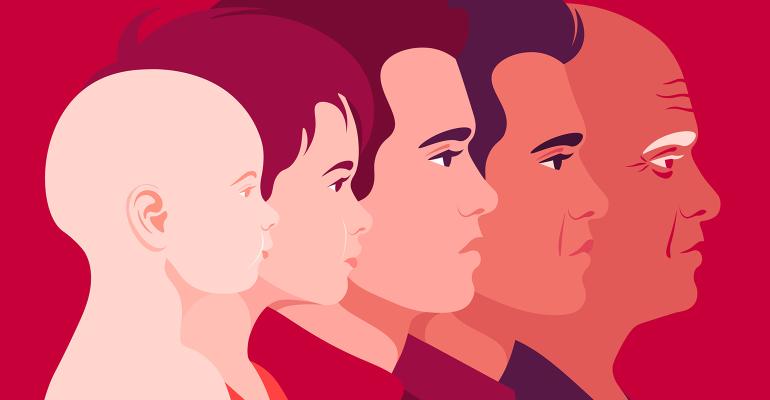Change can be hard, but it can also be exciting, depending on your attitude. But fundamental transformations, like a teenager maturing into an adult, can either be traumatic or exhilarating. How we react defines who we become on the other side of the change.
Now, 401(k) and 403(b) plans must now fundamentally transform into something few could have envisioned just 10 years ago, driven by three societal pressures:
- Greater access to retirement plans at work for more workers
- The convergence of wealth, retirement and benefits at work
- The need for in-plan retirement income to replace pension plans and even Social Security
The defined contribution industry as currently constituted is not equipped to properly address these issues, which means many of the current providers and advisors, even those currently with great influence, will not be around when this transformation is completed.
Realizing the power of payroll deducted savings, federal and state governments are either encouraging, through tax credits and more efficient vehicles like PEPs, or mandating, that most employers offer some sort of retirement savings plan at work, increasing new plan formation. We are at the beginning of an explosion of DC plans, which have stagnated at just under 700,000 for a while and could reach 3 to 5 million plans in the next decade.
Who has the technology, manpower and foresight to serve these small, start-up plans?
Most current providers and advisors charge by assets with costs based on participants, which they hope to be able to leverage, and plans. Technology is clumsy and dated. Data needed to leverage participants and make small plans attractive is hard to extract and fraught with privacy issues. Cooperation so needed to succeed is tentative—advisors, record keepers and money managers compete to gain assets as margins continue to shrink in a zero-sum game.
Traditional retirement plan advisors eschew smaller plans and start-ups requiring minimum plan revenue. Wealth advisors see little attraction in the DC industry, preferring to mange money outside the plan where the fees are higher, the technology is infinitely more robust and the data is readily available, not to mention the liability and oversight is much lower.
Serving the holistic financial needs of the estimated 80 million DC participants, which is bound to greatly increase, has driven up valuations of record keepers and RPAs, but the reality is less than 10% of workers have enough assets to justify a customized financial plan requiring periodic tweaking. Probably fewer. And engagement is dismal as is the current state of financial literacy education.
Yet the workplace is becoming that one touch point where workers and their families can more easily get assistance with more if not all of their financial and benefit needs. Many of these services have nothing to do with retirement, like student loans, emergency savings and health savings accounts, but can now be attached to retirement record keeping platforms. Can we provide holistic wealth and benefit advice to the masses, not feasible outside the plan, through better technology and AI?
And as more plan sponsors are willing and even eager to retain assets of retiring workers, can the DC industry provide a viable retirement income option that includes periodic payment and advice? Currently, each participant is managing a solo defined benefit plan running the gauntlet of saving enough and investing wisely only to face the more complicated issue of not running out of money without being able to spread the risk.
These are really big issues which will take tens of billions of investment in training, technology and education, further driving record keeper and RPA consolidation. Only a few providers will survive and most RPAs will either have to be part of or affiliated with a larger entity that can provide support just like RIAs.
But the societal pressure is real, the technology is available and being developed, especially AI and there are younger advisors, whether focused on DC plans or wealth, ready, willing and able to meet the challenges.
Payroll providers and fintechs have figured out how to work with small and start-up plans even if their service model results in high turnover. And wealth or consumer tech companies can not just serve the needs of the underserved but anticipate them and proactively help with HRIS system managing complex benefits and payroll.
Firms like the Portability Services Network, the first cooperative industry data exchange, driven in part by SECURE 2.0, offer the real hope of helping people consolidate the plans they accumulate over their careers creating a practical “universal plan.” It even makes sense to roll in IRAs for people that do have access to a financial planner.
The fundamental transformation of the DC industry will squeeze out many, especially those hanging onto to the Triple F model or 1990s technology unwilling to share data and facilitate in-plan lifetime income solutions. But it will also open vast opportunities for others ready to embrace the change which is coming and undoubtably inevitable.

